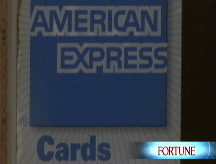5 stores bucking the sales slump
Move over Wal-Mart: Here are specialty chains - none of them a discounter - where budget-conscious Americans are still shopping.
NEW YORK (CNNMoney.com) -- Move over Wal-Mart: You're not the only game in town in this recession.
While it's evident that more cost-conscious consumers are downsizing their everyday purchases to Wal-Mart (WMT, Fortune 500) and other discounters, several retailers are showing that Americans haven't entirely lost their appetite for indulgent consumption.
Among them were Hot Topic, Buckle, American Apparel and Cato.
Most retail analysts look at spending patterns in the specialty store arena as a gauge of discretionary, or unessential, spending.
No doubt, eroding sales in this sector show that specialty merchants that sell clothes, shoes, jewelry, furniture and electronics have been especially battered this year.
A sampling from sales tracker Thomson Reuters last week showed just how bad November was for some of the nation's leading chains.
Abercrombie & Fitch's same-store sales, or sales at stores open at least a year, tumbled 28% last month, Pacific Sunwear sales fell 10% and Chico FAS's sales dropped 15.4% in the month. At the same time, Wal-Mart logged a better-than-expected 3.4% same-store sales gain.
Still, amid last month's retail debris were some examples of specialty sellers that posted sales increases.
Hot Topic's (HOTT) same-store sales rose 6.5% versus a 8.3% drop last November and Buckle's sales increased a stellar 15% on top of an 18% gain in the same month a year ago. Sales at American Apparel increased 6% and Cato Corp. logged a 2% sales gain in November compared to a 6% decline a earlier.
Why are these sellers still resonating with reluctant shoppers?
Marshal Cohen, chief retail analyst with NPD Group, said that even though consumer spending has slowed dramatically this year, it's not dead.
"If you're selling something unique or something that consumers perceive to have value for them, they will still buy," he said.
Both Hot Topic and Buckle, he said, cater to a niche market of mostly young adult shoppers who want to be expressive and trendy. So shopping at Wal-Mart isn't really an option for them.
"You look at a chain like Aeropostale. There's no uniqueness. Every teen has the brand," said Cohen. "But Hot Topic lets you be creative with what you wear."
This chain was once the seller of Goth-inspired merchandise. But after a challenging past five years in which both its sales and profits evaporated, the company moved away from that theme.
Today, Hot Topic is in turnaround mode. Most of its merchandise is now tied closely to the latest music trends as well as pop-culture fads.
What's Buckle's (BKE) secret? Teens want to wear designer looks at affordable prices. Buckle sells mid-priced "designer-like" jackets, dresses and shoes for fashion-conscious teens.
Its loyal shoppers also like Buckle's status as denim central. Jeans make up almost half of its product mix with high-style brands such as Lucky Jeans and Silver under one roof.
"I love Buckle," said Cohen. "This store has more merchandise per square inch than Macy's did five years ago."
"It has the best name brands under one roof," he added. "This keeps consumers engaged."
At American Apparel (APP), it's all about value.
"If [you] buy a $250 pair of jeans and $50 blouse from Guess, [you] can buy a camisole for $15 at American Apparel," Cohen said.
Also, American Apparel's competitive edge is that all of its products are made in the United States and feature no branding.
"There's no better customer than a passionate teenager. American Apparel has successfully tapped into that passion," said Candace Corlett, retail expert and principal with WSL Strategic Retail. When you wear American Apparel clothing, you're making a statement, she said.
Cato (CTR) is a regional seller of value-priced clothing for low-to-mid income shoppers.
"Think of it as a Kohl's before Kohl's committed itself to proprietary brands. Cato sells local merchandise to a local markets," said Cohen. "You can find what you want at a deal. Sometimes a simple formula is all you need to be successful. They are not overexposed, they don't over advertise or overdistribute."
Love Goel, chairman and CEO of Growth Ventures Group, a specialty retail private equity firm, said Cato's locations are its other strength.
"Cato stores cater to markets with 100,000 or fewer households. These town typically don't have any other big retail chain competitor," Goel said. "I think it's Cato's business model that is making it immune to the economy."
But the economic downturn is clearly lifting the fortune of Aaron's Rent (RNT). The company rents, sells and offers rent-to-own options for everything from home and office furniture to kitchen appliance and even big-screen televisions.
The company, which reports same-store sales on a quarterly basis, logged a 5.7% sales increase in its third quarter.
"Aaron's Rent is a natural [fit] for this economy," said Goel.
Added Cohen, "The company lets you buy over time instead of on credit. That's a huge competitive advantage."
WSL Strategic Retail's Corlett agreed with both Cohen and Goel. "Just like it's become respectable to have a pre-owned car, its now respectable to rent furniture or anything else you need for your home," said Corlett.
"Aaron's Rent is another way for consumers to get what they want and be responsible about it," she said. ![]()


